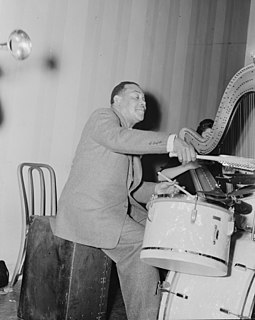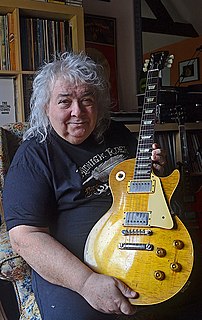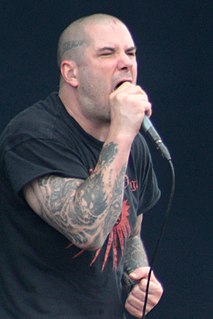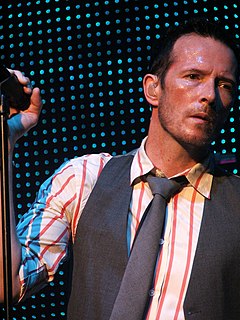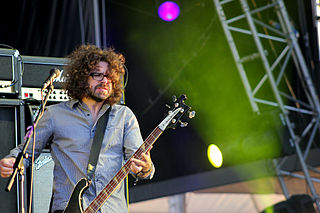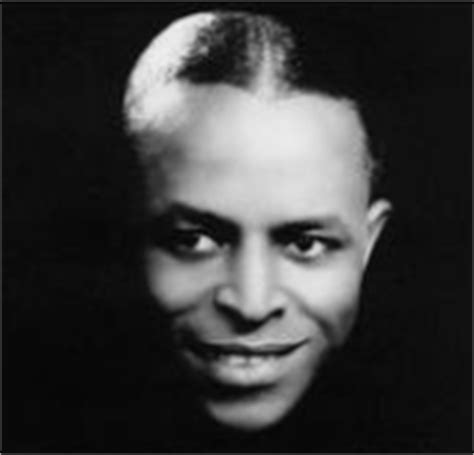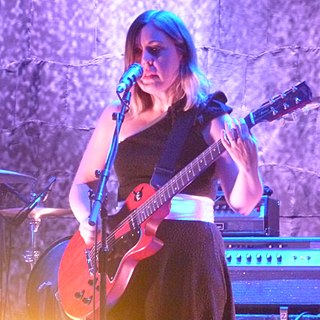A Quote by Zutty Singleton
There were so many bands in New Orleans. But most of the musicians had day jobs, you know -- trades. They were bricklayers and carpenters and cigar makers and plasterers. Some had little businesses of their own -- coal and wood and vegetable stores. Some worked on the cotton exchange and some were porters. They had to work at other trades 'cause there were so many musicians, so many bands. It was the most musical town in the country.
Related Quotes
The 1970s was probably the most exciting decade to be a teenager, from discovering Little Richard at the end of the 1960s to glam rock to punk rock to electro music. So much happened in that 10-year span. There were so many musical revolutions. Some were happening at the same time. You had disco going on behind punk. You had Michael Jackson. You had the Sex Pistols.
Signing to a major, there weren't many bands from our sphere that were doing it. I mean, obviously R.E.M. had done it, and Husker Du and the Replacements had done it, and maybe Soul Asylum, but that was probably about it. Those four bands were pretty much the only ones from that milieu that had signed to a major.
When I was a little kid wanting to play music, it was because of people like Pete Johnson, Huey Smith, Allen Toussaint, Professor Longhair, James Booker, Art Neville ... there was so many piano players I loved in New Orleans. Then there was guys from out of town that would come cut there a lot. There was so many great bebop piano players, so many great jazz piano players, so many great Latin piano players, so many great blues piano players. Some of those Afro-Cuban bands had some killer piano players. There was so many different things going on musically, and it was all of interest to me.
At the beginning of the 20th century, before the migration began, 90 percent of all African-Americans were living in the South. By the end of the Great Migration, nearly half of them were living outside the South in the great cities of the North and West. So when this migration began, you had a really small number of people who were living in the North and they were surviving as porters or domestics or preachers - some had risen to levels of professional jobs - but they were, in some ways, protected because they were so small.
It was awesome growing up in New Orleans because there were great metal bands, there were great hardcore bands, there were great thrash metal bands in the middle '80s and what-not. But then, take me out of New Orleans, and I moved to Fort Worth in 1987, and there's a scene there, too. And Texas absolutely has a different sound.
Mostly I listen to old-time music, some bluegrass, some Americana stuff, too many to name. But of the younger acts, there are The Freight Hoppers, who were big in the '90s, and The Foghorn Stringband from Oregon, and there's a lot of young string bands coming up now, basically punkers who play acoustic instruments forming new bands.
The story of our band is that we were this relentless touring band in those early years. We were leaving day jobs and going off on the road and having fun and seeing the country for the first time. We were playing Chinese restaurants and basements and record stores and houses. We were crashing on floors and it was all new and exciting. It was like a vacation. It didn't feel like work. I couldn't wait to go on tour back then. I would be sitting at my day job or my apartment, just itching to go. There were so many adventures that were about to happen.
For many years the stakes were clear. There were the Arabs attacking us and us defending ourselves, so basically there were no real problems [between the United States and Israel]. Now there are many small cells, and each of them can destroy on their own. Some can arrive at New York and kill thousands of people.
